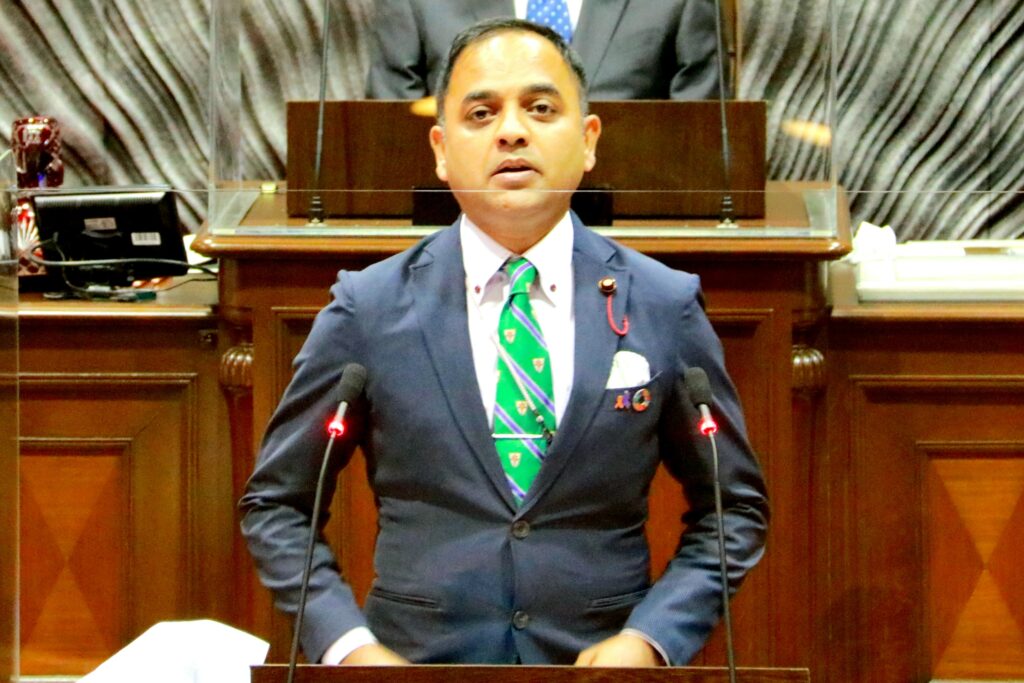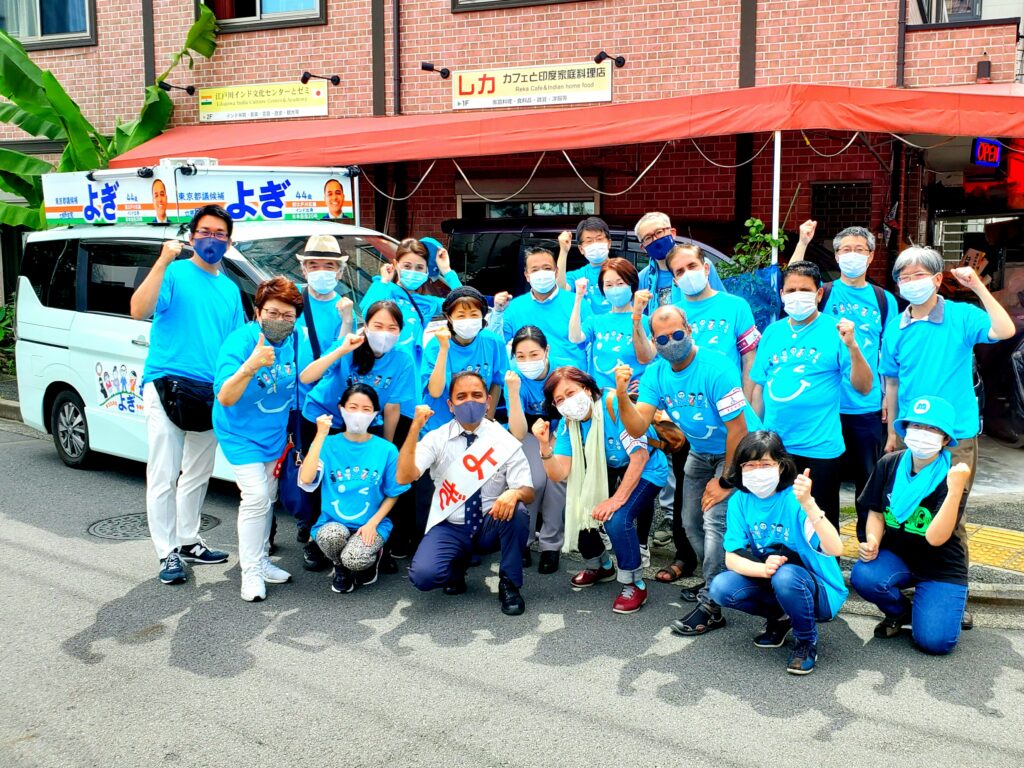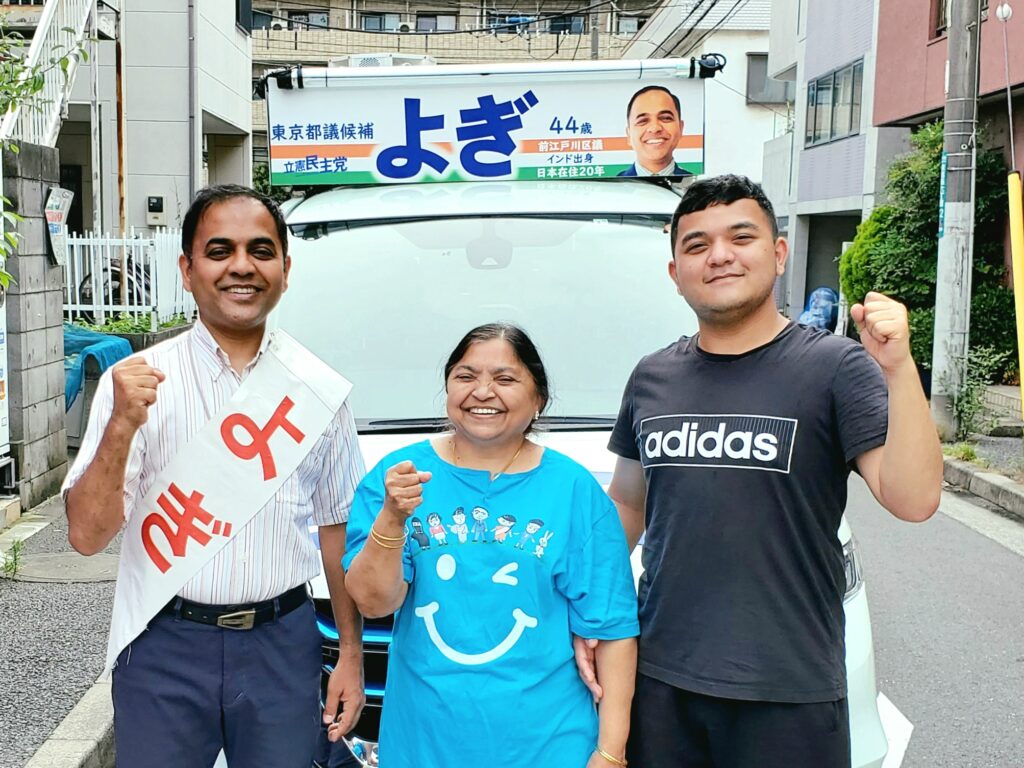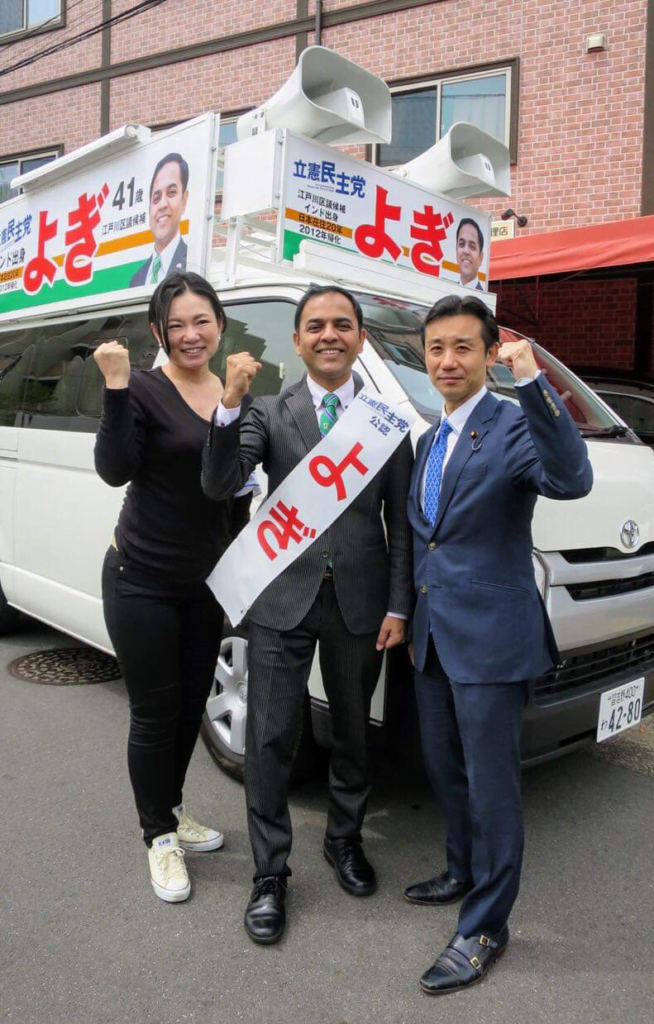The Desi Buzz Editor & Publisher Dr.Tausif Malik spoke with Yogi よぎ – Yogendra Puranik, First Indian/Asian-origin Assemblyman, First foreign-origin Public School Principal & First Indian-origin Gazetted Officer in Japan.

Dr.Tausif Malik: Thank you for accepting our invitation for the interview.
Yogi よぎ – Yogendra Puranik: Hello to all! Thank you ‘The Desi Buzz’ for inviting me to this interview. I am happy to share my experience for the betterment of the immigrant diaspora all across the world.
Dr.Tausif Malik: Please give a small intro about yourself for our readers? (Education, Career & Family)
Yogi よぎ – Yogendra Puranik: My full name is Yogendra Puranik. I have been called as Yogi since my birth. I was born in Jun-1977 in suburb of Mumbai city. I am a versatile Gemini who enjoys everything in life. I got my basic education in India and then scholarships to Japan, China and France. I have studied Science, Economics, Management, Infotech, many languages and so on. I was also a scout and National Cadet Corp which imbibed some amount of sincerity and dedication into me. I started working in an IT company at the age of 18, became a teacher in Pune University at the age of 19, have worked internationally for 25+ years and having worked in pure IT, manufacturing, banking, restaurant, politics and educational fields, I have experienced the world from various different perspectives. I am probably the first Indian to rise to Directorial ranks in a pure Japanese bank headquarters. I am the first-ever assemblyman of Indian/Asian-origin in Japan. I am the fist-ever Indian-origin person to be a Gazetted officer in Japan. And I am the firstMy 17+ years of social work has connected me to so many people, so many stories and so much of information that people around me call me as a walking institute. Reach out to Yogi and he can definitely guide you. Today I am aged 45, single. My ex-wife was a Chinese. We have a son 20 years old who is now studying in the UK. My mom stays with me in Japan and we together run one of the most popular and genuine home-food restaurant in Tokyo. It has been on Japanese televisions for more than 70 times, has been covered in 100s of popular magazines and we also won the Tokyo Edogawa Mayor’s award for our restaurant.

Dr.Tausif Malik:What inspired you to be a Politician?
Yogi よぎ – Yogendra Puranik: It started around 2016-17. One Japanese assemblyman in my area along with some Indian businessmen came up with an idea of building a Little India in our area. I was deeply indulged in the local community and I sensed the kind of hatred issues this project could give birth to. As I was one popular member in the community, the assemblyman proposed a Director role to me in the project. However, I laid the condition to rework on the objectives and details. The assemblyman denied to do so and during our conversation he dared me of consequences and throwing me out of the city. I appealed to the Mayor and City Planning department however they did not take any action.I realized that these people do not understand the community. They do not understand the real issues of the immigrants and their gaps with the local Japanese people. And this triggered a thought of running for elections. I was a senior banker and it was not an easy decision to go into politics. Firstly, it would cut my pay by 70% and I was not sure that I would even win!
There are many firsts of your career: First Indian/Asian-origin Assemblyman, first foreign-origin Public School Principal & first Indian-origin Gazetted Officer in Japan? Please share some insights?(Yogi-28/Feb) This are the barriers I have broken for the immigrant community in Japan. Honestly, I did not realize it myself. It was an editor from Tokyo News and one from New York Times who made me realize it. When I won elections, all major newspapers and televisions flashed the news, right from US to China. My ex-wife shared the news in Chinese newspaper. People across the world saw it as a shift in the closed islander mentality of the Japanese. And yes, it was. In the elections after that, more and more foreign-origin candidates have run elections. Many Japanese youngsters reached out to me for guidance on running elections. They found me more approachable than a typical Japanese politician. I am damn sure that a diverse Japanese assembly will bring more and more benefits for Japan. It will ignite a fresh thought process. Many Indians from countries like the US, Germany, Australia approached me for guidance on running elections.Now I have taken up a role of Principal of a leading Japanese public school with 125 years of history. History means loads of baggage, loads of pride. Government has given me a free hand to bring in changes that would become a model for change in Education in Japan. It is not going to be easy. People do not like change. And I have to be careful enough as one worn step will directly affect the lives of the students. And I also see the need for reskilling my teachers and enable them to lead the change.

Dr.Tausif Malik:What were the challenges you faced to participate and win the assembly election?
Yogi よぎ – Yogendra Puranik: Prose, process, people and promotion, 4Ps were the key aspects. Firstly, although I am fluent in Japanese language, and I had some Japanese friends to support me. Even then understanding the terminologies and typical way of writing was not easy. Secondly, Japanese people like to complicate processes and not allow mistakes or exceptions. Hence, understanding the whole process and documentation was the next big challenge. Thirdly, getting people as active volunteers, as supporters and as voters was a tough challenge. People without Japanese nationality cannot offer donations or free labor towards the elections. Also, there were many occasions when people uttered nasty things like ‘Go back you foreigner’ on my face during my campaign. Fourthly, there were many limitations on the ways of promotion. And if you did a mistake you could be barred from running the elections. The rules were very tricky. Unlike India, in Japan, only one campaign car is allowed to run on the roads. You can’t have 10s or cars running on the roads for your campaign. Election is a very controlled activity.

Being the first Indian-origin assemblyman of Japan, what expectations does the community seek from you?(Yogi-28/Feb) People expected me to be a bridge between the immigrant and the Japanese community. The immigrants expected me to raise their voice to the administration to let the administration understand their real needs. For me, it was a two-prong agenda. One, things to do on a policy level and two, things to solve individual issues. Japanese people do not like exceptions and the immigrants are always held up in exceptional cases that cannot be handled through the common processes mentioned in the administration manual. This meant, I had to negotiate with the administrative officers to solve the exceptional cases troubling the immigrants. At the same time, Japanese people who voted for me also asked for my help. I was called by MPs, many organizations to work together with them on several issues including issues of Woman equality, LGBT and so on.

Dr.Tausif Malik:How did your family support you during your election campaign and what were their reactions after your win?
Yogi よぎ – Yogendra Puranik: My mom Rekha Puranik has always been a great supporter. When I asked her permission to run for elections, she just confirmed if I believed in the step. And then she was all with me. My son Chinmay Puranik was also supportive. In the beginning he was shy. However, as time went by, he got used to being in front of the people. After the win, mom and son were probably the happiest people on this earth. Through these years, many people have become a part of my life and I look at them as my family. All of them were overjoyed with my electoral win.
Dr.Tausif Malik:Brief us, about the Indian diaspora in Japan, their success and challenges?
Yogi よぎ – Yogendra Puranik:The Indian diaspora in Japan is still small. We are around 40,000 Indians or Indian-origin people here in Japan. There are businessmen whose ancestors settled down here in late 19th or early 20th century. And then there are hoteliers and cooks who came here since the 1970s or so. Then there is this big IT and white-collar population that started coming in from late 1990s. And now we are seeing an increase in the low-educated, low-income group of people under the technical interns programme. It is very important that the diaspora stays together and maintains a good image of India.Then we have state-wise communities like the Marathi Mandal, Kairali Association, Tamil Sangham and so on. These associations are mainly into the organization of cultural activities. Lately, the Indian diaspora is forming specialized groups for cultural activities. We also have feathered city-wise groups for exchange of local information and buy-sell activities. After experiencing the huge earthquake and later effects, we formed an All-Japan Association of Indians (AJAI) with representatives from these state-wise organizations in order to support the welfare of the people here. We are also planning to create a One-India Festival which will bring together all the Indian-state-wise associations in Japan.

Dr.Tausif Malik:How do you see India-Japan Relationship?
Yogi よぎ – Yogendra Puranik: Historically, India and Japan share a deep relation. India provided the religious, philosophical, cultural and linguistic base to Japan for more than 1500 years now. India also offered support to Japan during the court proceedings of WWII.In the modern era, India and Japan share a tricky relation which saw heightened activity in the Modi-Abe era. As India is in the Russian league, and Japan is in the US league, there is a subtle distance between India and Japan. While India is the maximum benefiter of the Overseas Development Loans from Japan in the recent years, the relation between these two countries is still not maximized. Japanese companies have been careful when investing in India.From the social perspective, Indians in Japan are still less and we are yet to make a mark here as seen with the Indians in the US or Europe. However, the community is definitely making strides into a direction to break more and more barriers. I wish all the best to the Indian diaspora in Japan and the India-Japan relations.

